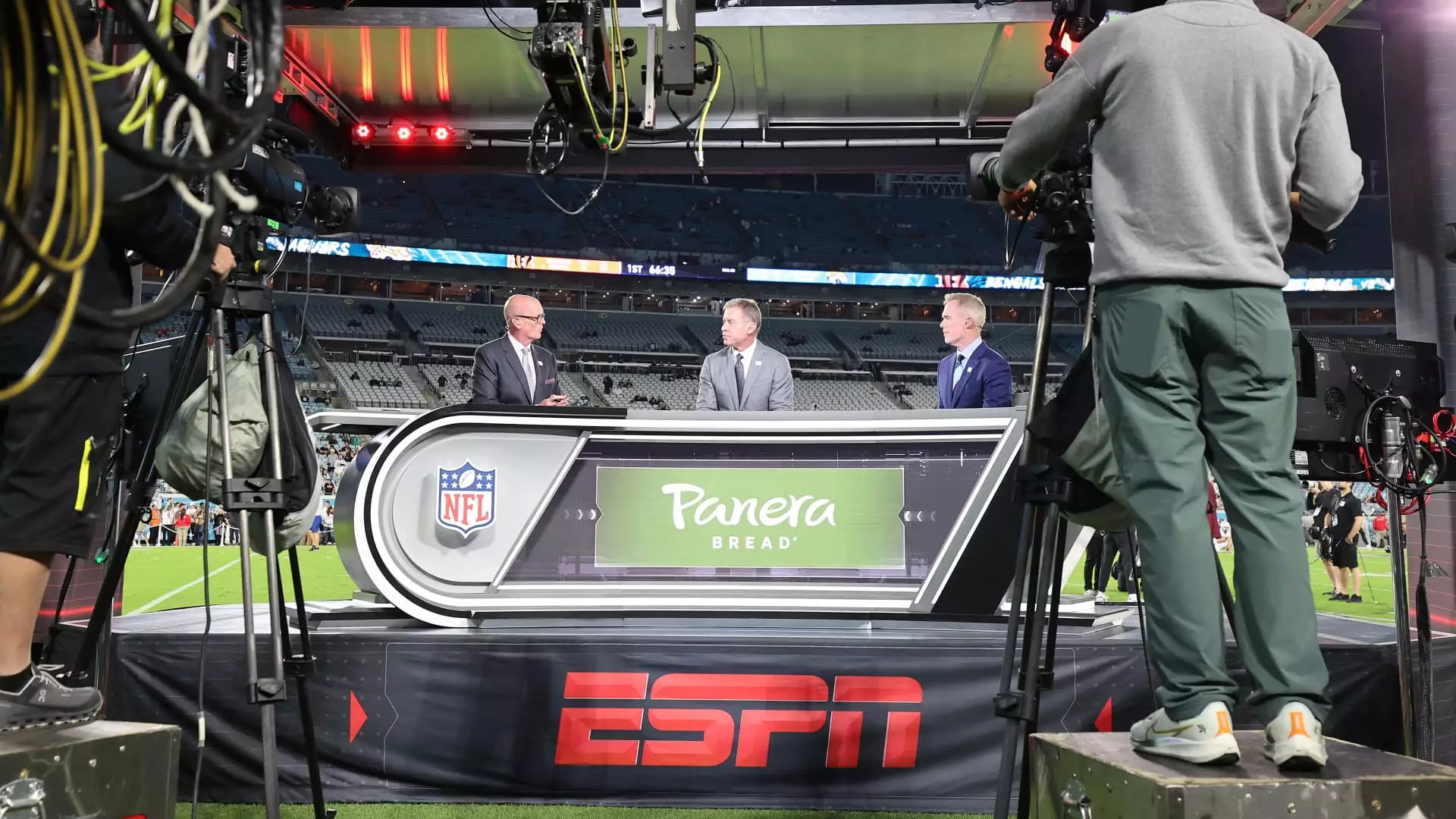The ongoing carriage dispute between DirecTV and Disney has left millions of DirecTV customers in the dark when it comes to watching popular channels like ESPN and FX. The battle over fees and bundling has escalated to the point where DirecTV customers are missing out on major sporting events, including the NFL’s “Monday Night Football” game. The inability of these two media giants to reach a deal has left many consumers frustrated and disappointed.
For NFL fans who are DirecTV customers, the consequences of this dispute are significant. With opening night games and matchups like the New York Jets vs. San Francisco 49ers being affected, fans are left scrambling to find alternative ways to watch their favorite teams in action. The uncertainty surrounding the resolution of this conflict has created anxiety and frustration among sports enthusiasts who rely on these channels for their entertainment.
Live sports continue to be a major draw for media companies, as they attract large audiences and drive up media rights deals. Networks like ESPN command some of the highest fees in the industry, making them valuable assets for pay-TV companies. However, as more consumers shift towards streaming services, traditional pay-TV bundles are facing challenges in retaining customers. This shift has led to increased competition and conflicts between content providers and distributors.
The legal battle between DirecTV and Disney has raised concerns about antitrust issues and fair competition in the industry. With players like Venu entering the market, established companies are fighting to protect their interests and market share. The accusations of anti-competitive behavior and bad faith negotiations highlight the complex dynamics at play in the media landscape. As regulators and industry stakeholders monitor these developments, the outcome of this dispute could have far-reaching implications for the future of content distribution.
At the heart of this dispute are the consumers who are caught in the crossfire between DirecTV and Disney. With limited options for accessing their favorite channels and programming, customers are left feeling frustrated and powerless. The blackout of channels and the inability to watch popular sporting events have underscored the challenges faced by traditional pay-TV providers in an era of rapid technological change. As competition intensifies and new players enter the market, consumers are caught in the middle of a battle for control over content and distribution.
The ongoing carriage dispute between DirecTV and Disney highlights the complexities of the modern media landscape. As the battle over fees and bundling continues, consumers are left grappling with the uncertainty of accessing their favorite channels and programs. The impact of this conflict on NFL fans underscores the broader challenges facing the industry as it navigates a shifting media landscape. Only time will tell how this dispute will ultimately be resolved and what it means for the future of content distribution and consumer experience.

